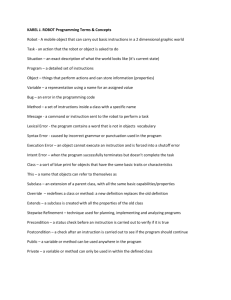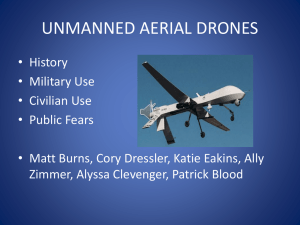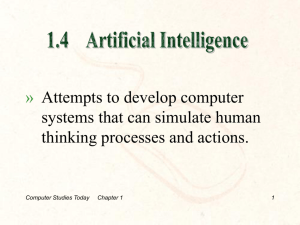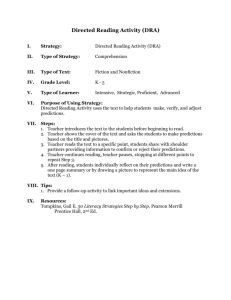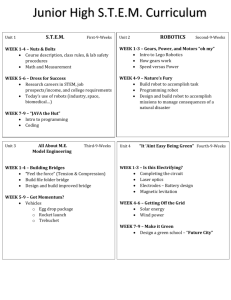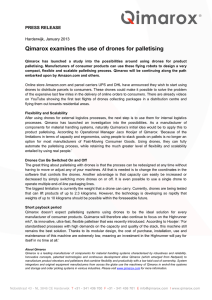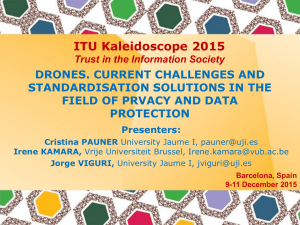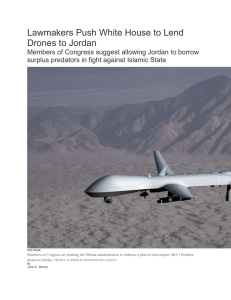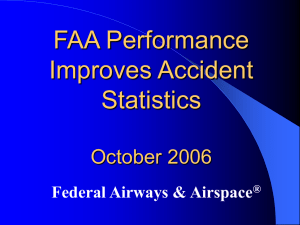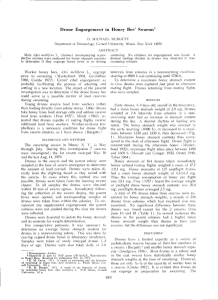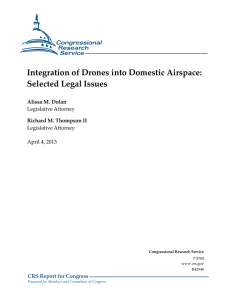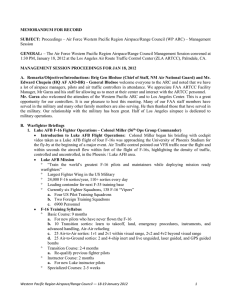IS 376: Information Technology & Society Course Overview
advertisement
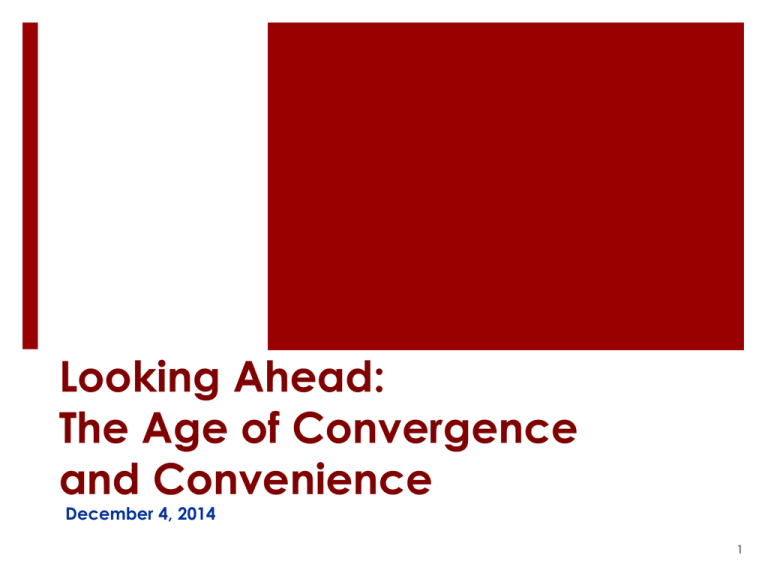
Looking Ahead: The Age of Convergence and Convenience December 4, 2014 1 2 Convenience is the new normal. 3 Major Questions Is it possible to make good predictions? “It is inconceivable,” The convergence of “search, location, and social” is the next big narrative. Eric Schmidt – Google Chairman Who is responsible for autonomous robots’ actions? 4 On Predictions Arthur C. Clarke's Three Laws When a distinguished but elderly scientist states that something is possible, he is almost certainly right. When he states that something is impossible, he is very probably wrong. The only way of discovering the limits of the possible is to venture a little way past them into the impossible. Any sufficiently advanced technology is indistinguishable from magic. (Clarke suggested the Geosynchronous Orbit in 1945.) 5 Commercial Drones Federal Aviation Administration passed a road map and regulation to have commercial drones by September 2015. Expected to approve 7500 drones by September 2015. Huge potential for economic growth. Expected problems are: Training of ground based pilots; Drone safety; Communication between commercial airline and drones. Privacy 6 FAA Safety is central to the FAA’s existence. The agency was established in 1958 when Congress enacted the Federal Aviation Act, which tasked the agency with “develop[ing] plans and policy for the use of the navigable airspace and assign by regulation or order the use of the airspace necessary to ensure the safety of aircraft and the efficient use of airspace.” The 1958 Act was passed in the aftermath of a tragic midair collision between a Trans World Airlines Super Constellation and a United Air Lines DC-7 over the Grand Canyon, which killed all 128 people on board the planes. 7 Predictions of the Future Predictions of the Future (backwards). See Nicolas Negroponte 8 Example of Convenience Corning Glass – everything on my finger tips 9 @2020 A global, low cost network infrastructure. Autonomous technology is a problem. Transparency builds a better world; even at the expense of privacy. People will be lost to virtual realities. Thomas Friedman’s “The World is Flat” becomes even more flat. Refusenicks will self segregate to form communities. 10 Robot Education/Socialization Who is responsible for teaching machines about how to live with us? Is the Rightness of Action Determined Solely by the Value of Consequences? Utilitarian ethics will be critical. Regulatory and privacy issues 11 Ethics and Moral Machines Isaac Asimov’s Three Laws of Robots A robot may not injure a human being, or through inaction, allow a human being to come to harm; A robot must obey orders given it by human beings except where such orders would conflict with the first law; A robot must protect its own existence as long as such protection does not conflict with the first and second laws. 12 Digital Divide and Globalization Changes in policies toward aging workers and technology A child born today with a life expectancy of 90 will live to 2104 Other digital divide factors like education, economics, and access Development of mutually agreed standards of conduct across the globe. 13 Business Models Today computer science is really about consumers and information. In the future it will be about “claimed places”, which would allow businesses to take advantage of location-based search and smartphones as part of their advertising, service delivery and safety. 14 Business Models Intelligence is expensive now, but will be free in the future, just as we thought computing power would remain expensive. The future will bring (artificial) intelligence to the masses, the same way we now have high speed internet. Thus individuals will be able to develop any service without the need of a company to back them up. http://liveops.com/ Creative ideas will become the source of success. Today we have plenty of ideas but not enough people to turn them into reality, so the doers have the advantage. The doers will no longer be needed in the future though, as the doing will be done by the cloud. Talk about a revolution!
